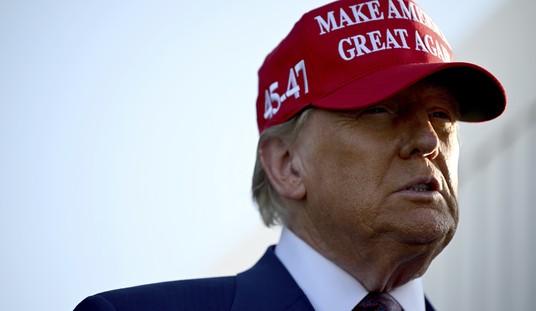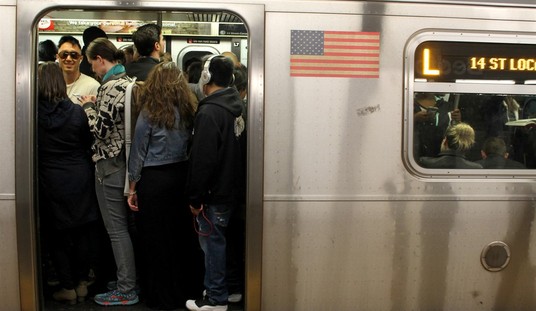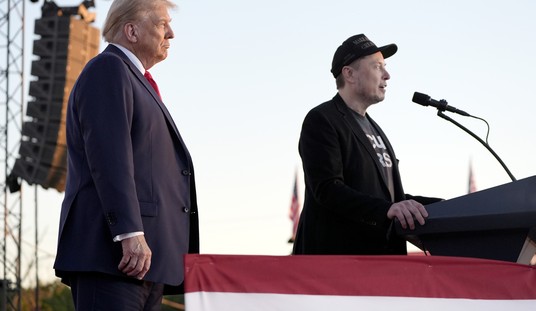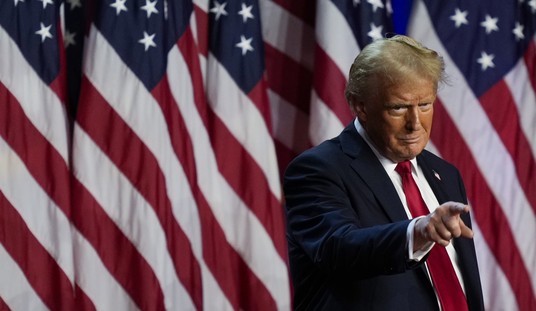While everyone’s focus is on United Airlines’ mistreatment of a passenger, we’re not hearing a lot about how U.S. Customs and Border Protection is demanding that some travelers coming into the United States hand over their cell phones—and the passwords to unlock them—for government inspection.
NPR reported on a U.S. citizen and NASA engineer who recently got singled out for such an inspection when returning from a trip to South America.
As the Trump administration considers steps to implement what the president has called extreme vetting of foreigners at the border, one aspect of security screening has already been amped up.
The number of people who have been asked to hand over their cellphones and passwords by Customs and Border Protection agents has increased nearly threefold in recent years. This is happening to American citizens as well as foreign visitors.
It happened to Sidd Bikkannavar on January 30, ten days after President Trump’s inauguration. He was returning from a trip to Chile, where he took part in his hobby, racing solar-powered cars. At the Bush Intercontinental Airport in Houston, Bikkannavar was told to report to passport control by CBP officers. He was asked a series of questions, all “pretty benign and uneventful,” he tells NPR, and was then told “to hand over my phone, and give the password to unlock it.”
This placed Bikkannavar in an unenviable position because he was being forced to choose between two contradicting security requirements from two separate federal agencies.
Bikkannavar is also a NASA engineer at the Jet Propulsion Laboratory. Bikannavar says he “politely as I could,” told the CBP officer “I wasn’t allowed to give up the password.” It was a work-issued phone, Bikkannavar says he told the agent, pointing out the NASA bar codes and labels on the phone.
But it didn’t matter to the CBP officer, who continued to insist, and handed Bikkannavar a document warning there would be consequences if Bikkannavar didn’t go along. And so he handed over the phone.
Now you might be wondering, doesn’t the Constitution protect American citizens from this sort of thing? Well, it turns out, the law isn’t entirely clear.
CBP maintains that searching the contents of a traveler’s cell phone is no different from searching the contents of their bags for contraband.
In an appearance before the Senate Homeland Security Committee last week, Department of Homeland Security Secretary John Kelly said such demands were, in general, “just like an American citizen coming in and having his bags searched, at the port of entry. Generally speaking, it’s done for a reason.”
In 2016, there were just under 23,877 devices searched by CBP agents; the year before, about 8,500. Kelly says such searches “aren’t routine,” and that the numbers haven’t ticked up appreciably since President Trump took office.
Naturally the ACLU has a different take on the legality of such searches. So does a bipartisan group on Capitol Hill including Senator Ron Wyden (D-Oregon) and Senator Rand Paul (R-Kentucky). They have proposed legislation that would require search warrants be obtained before searching through people’s data.
Sen. Ron Wyden, D-Ore., Sen. Rand Paul, R-Ky., and Rep. Jared Polis, D-Colo., and Rep. Blake Farenthold, R-Texas, today introduced the Protecting Data at the Border Act to ensure Americans are not forced to endure indiscriminate and suspicionless searches of their phones, laptops and other digital devices just to cross the border.
The bipartisan, bicameral bill shuts down a legal Bermuda Triangle that currently allows law enforcement agencies to search Americans’ phones and laptops – including pictures, email, and anything on the device and possibly the cloud – when they cross the border without suspicion or a warrant. Press reports indicate these searches have spiked over the past year.
“Americans’ Constitutional rights shouldn’t disappear at the border. By requiring a warrant to search Americans’ devices and prohibiting unreasonable delay, this bill makes sure that border agents are focused on criminals and terrorists instead of wasting their time thumbing through innocent Americans’ personal photos and other data,” Sen. Wyden said.
“As the Supreme Court unanimously recognized in 2014, innovation does not render the Fourth Amendment obsolete,” said Sen. Paul. “It still stands today as a shield between the American people and a government all too eager to invade their digital lives. Americans should not be asked to surrender their rights or privacy at the border, and our bill will put an end to the government’s intrusive practices.”
The full text of the bill for The Protecting Data at the Border Act can be viewed at Senator Wyden’s web site.













Join the conversation as a VIP Member